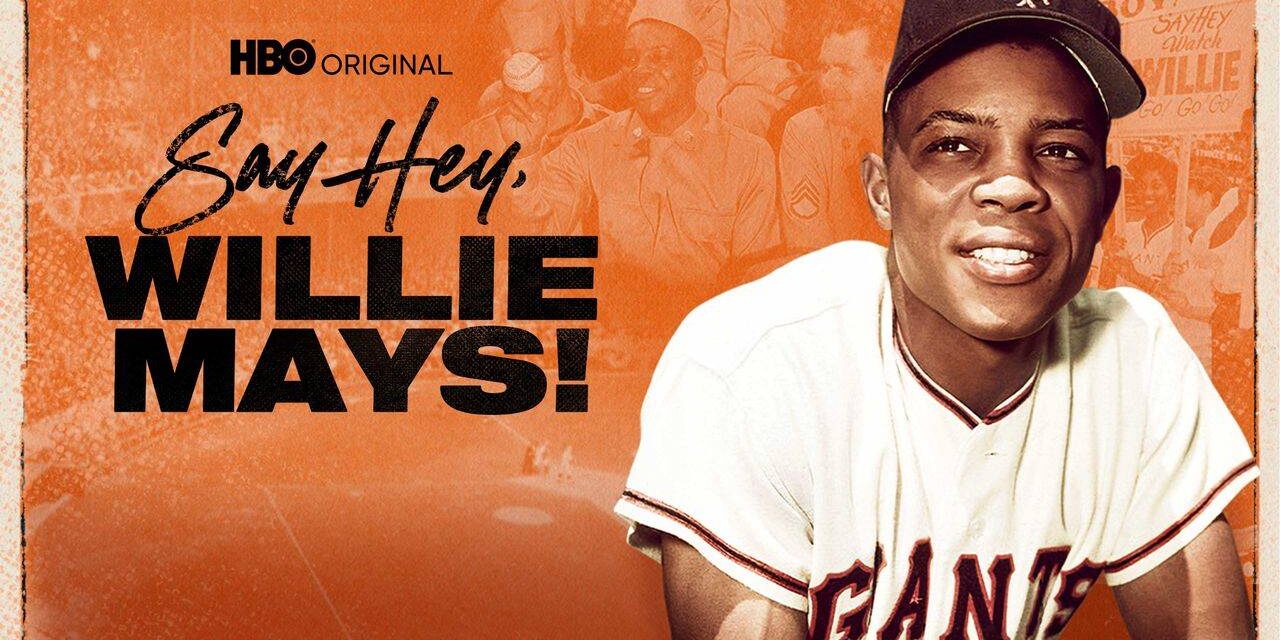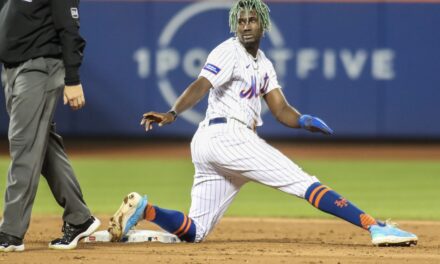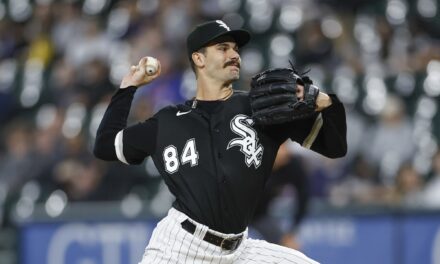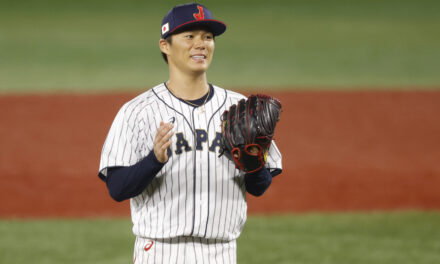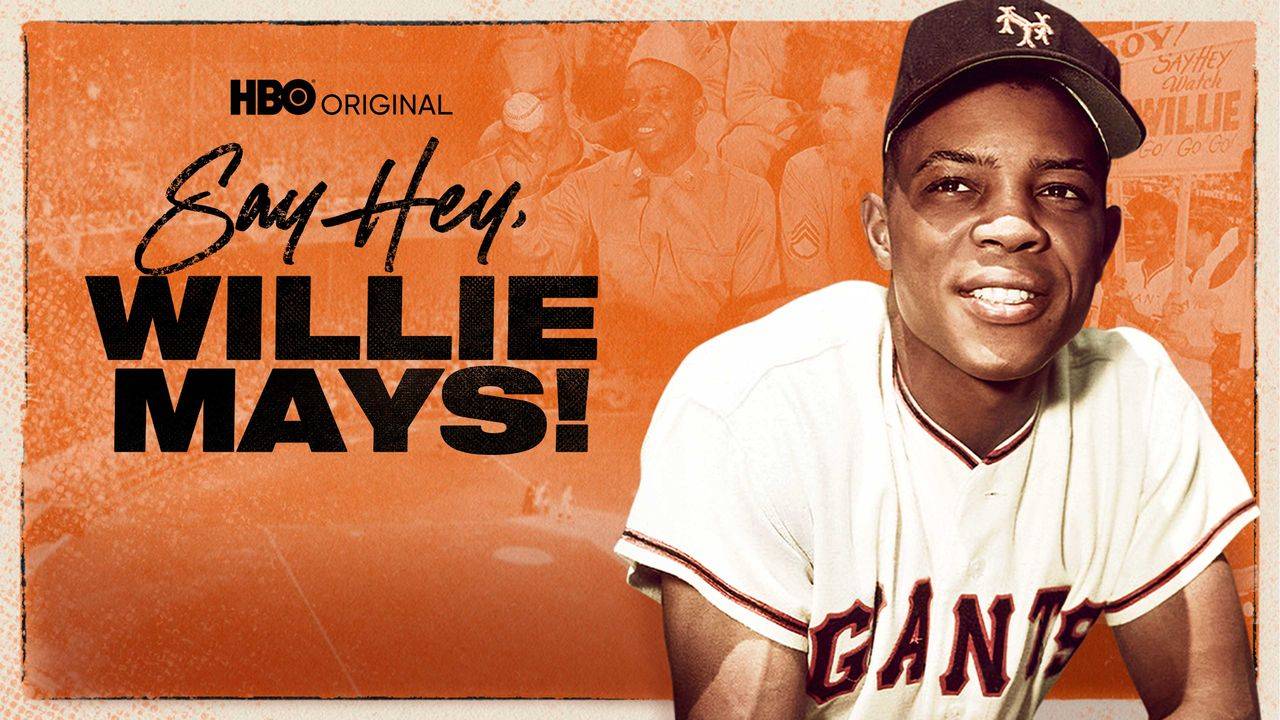
Fanshot by Marc Epstein (Mystere2417)
“When Willie stepped on the field, it was like going to see Michael Jordan, Muhammad [Ali].”
That is the quote from the opening montage of the feature-length documentary “Say Hey, Willie Mays!” that stays with you as you become immersed in the life and career of the 91-year-old living baseball legend. The film, now streaming on HBO Max, will be of interest to baseball fans of all ages.
Lending credence and gravitas to the film is Willie himself, who appears in past and present interviews throughout the one hour and thirty-eight minute retrospective. Photos and videos of Willie shown In the film date back to his childhood, the Negro Leagues, his army days, his prime with the Giants, the team’s move from New York to San Francisco, and his trade to the Mets, which provide insight into his personal life and showcase his incredible baseball career. What comes through is his love for the game, his immense talent, his incredible power which yielded 660 home runs and yet was curtailed by his stint in the army and by the swirling winds during night games at Candlestick Park, and the purity of his exuberance during every play, AB, and base-running opportunity.
Viewers will hear from his son, Michael, as well as many famous players strewn throughout the film, including Juan Marichal, Orlando Cepeda, Tito Fuentes, and Reggie Jackson, as well as baseball announcers Bob Costas and the late Vin Scully. Some of the honors bestowed upon him after his career was over are covered, from Willie Mays Night at Shea Stadium back in 1973 to receiving the Presidential Medal of Freedom from President Obama in 2015.
But the most frequent, insightful, adoring, and enduring perspective comes from another all-time baseball great, Barry Bonds, who is prominently featured in the film and is also Willie’s godson. Barry’s father, Bobby Bonds, a Giant star himself, was Willie’s teammate, outfield partner, and friend. Barry grew up idolizing Willie and running around the clubhouse at Candlestick Park as a young boy. He was even mad at his father for hurting Willlie when the two collided in one of Willie’s greatest defensive plays.
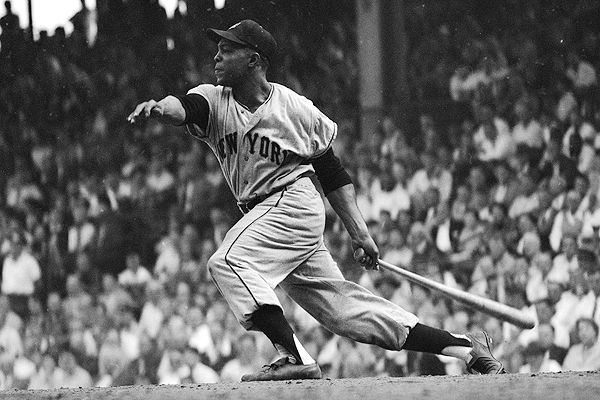
Speaking of great defense, viewers will be treated to an analysis of the most well known defensive play of all-time, simply known as The Catch, made by Willie in Game 1 of the 1954 World Series at the Polo Grounds. With the score tied 2-2 in the 8th inning between the NY Giants and the Cleveland Indians, Willie raced deep towards the centerfield fence and made an incredible over-the-shoulder catch with his back to home plate in 6.5 seconds to rob Vic Wertz of a tie-breaking, bases clearing, extra-base hit, and his twirling throw back to the infield immediately afterward prevented the runners from advancing on the play. It was an early turning point which set the tone for the Giants winning that World Series
What the film unfortunately does not do is attempt to elicit Willie’s thoughts about modern baseball. It seems completely incongruous with Barry Bonds so prominently featured in the narrative that the topic of performance enhancing drugs and the steroid era of which Bonds was so prominently linked, would not come up even once in the film, apparently pre-determined by director Nelson George as off limits. Adding to the dichotomy is the video of Barry hitting his 660th career home run and the video of Willie asking to speak unscripted at the Giants ceremony retiring Barry’s number, pleading for Barry’s induction in the Hall of Fame.
Beyond Willie, the athlete, the documentary does an effective job contextualizing Willie, the man, within the times in which he lived. It gives viewers insight into how he approached his own super stardom, his role as a leader on and off the field, the prejudice and racial slurs he endured as a black man in segregated America, his unique and understated approach to advancing equality and helping minority ball players, as well as his controversial reticence to participate publicly in the Civil Rights movement.
A notable element of the film is that it doesn’t shy away from controversy even as it pays significant homage to his incredible five-tool talents. It delves into the discrimination he famously faced when he was denied the purchase of a house in San Francisco because neighbors didn’t want a black family living in their neighborhood. Willie was adamant about purchasing that home, which he eventually did after much drama, but the very public controversy exacted a personal toll on his marriage leading to divorce.
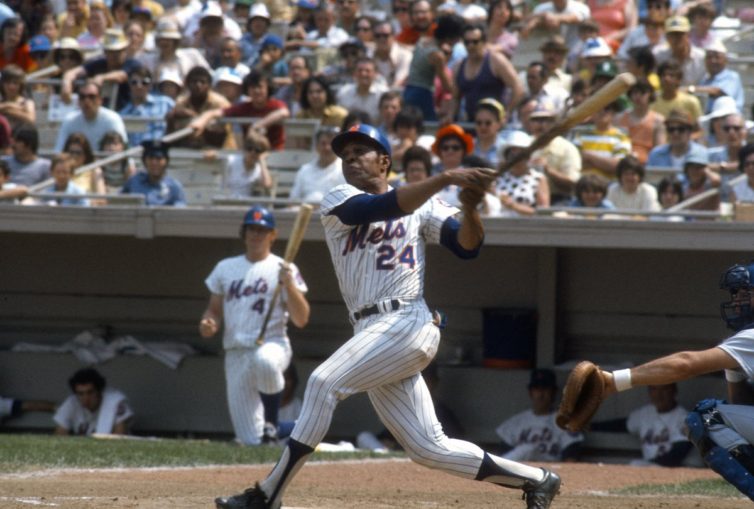
Willie was harshly criticized, and most notably called out by Jackie Robinson, the man who broke the color barrier four years before Mays was signed by the Giants, for not lending his fame to the Civil Rights movement. The documentary does a good job showing how Willie, in his own way, helped black and Latino ballplayers and contributed to public acceptance of racial tolerance and equality in a more personal and less public fashion.
Mets fans will not be disappointed when the story of Mays’ career switches from San Francisco back to New York due to the Giants inability to pay Mays’ salary any longer. Mets owner Joan Payson, former part-owner of the NY Giants and a huge Willie Mays fan, steps in and takes care of all the arrangements, giving Willie a veritable blank check to finish his career in NY after the 1972 trade, and even lured him back for one additional season, in 1973, which ended up extending all the way to Game 7 of the World Series. NY fans fully embraced his triumphant return to NY in the twilight of his career.
Images of Willie as a Mets player in the Game 2 of the World Series ranged from his troubles losing the ball in the sun and stumbling in the outfield, to pleading on his knees with the home plate umpire that he was wrong to call Bud Harrelson out trying to score, to his last hit, a game-winning RBI-single in the 12th inning, to his final speech on Willie Mays Night when he told Mets fans that “it was time to for Willie to say goodbye to America.”. The documentary ends fittingly with #24 being retired by the Mets at the first Old Timer’s Day at CitiField in 2022 (a game I attended with my son just as I had attended Willie Mays Night with my father almost 50 years earlier).
I give the documentary 4.5 out of 5 stars, deducting for the omission of steroids and the modern game from the narrative. But say hey, the focus is where it belongs, on Willie Mays himself, and that makes it a home run.


